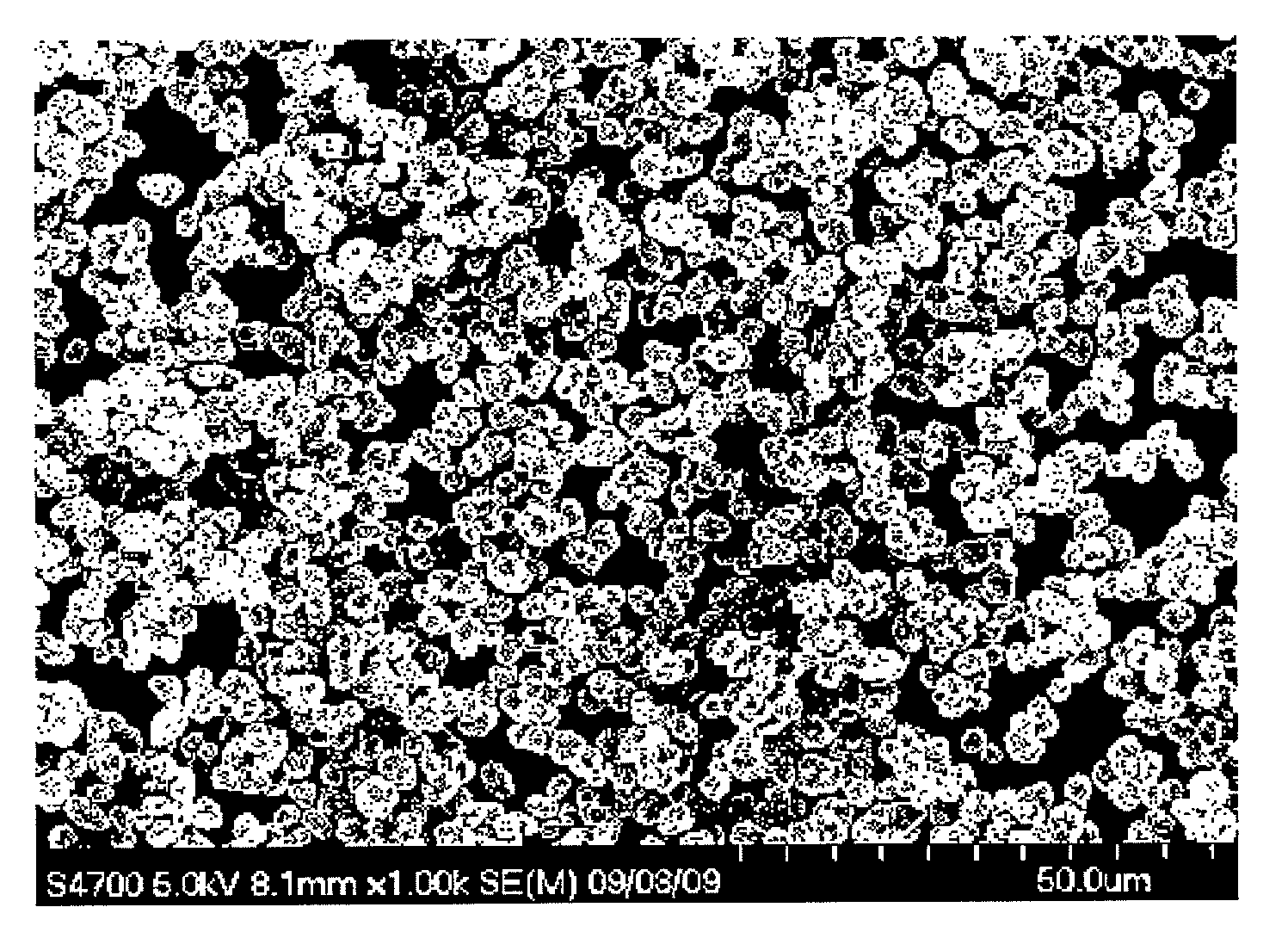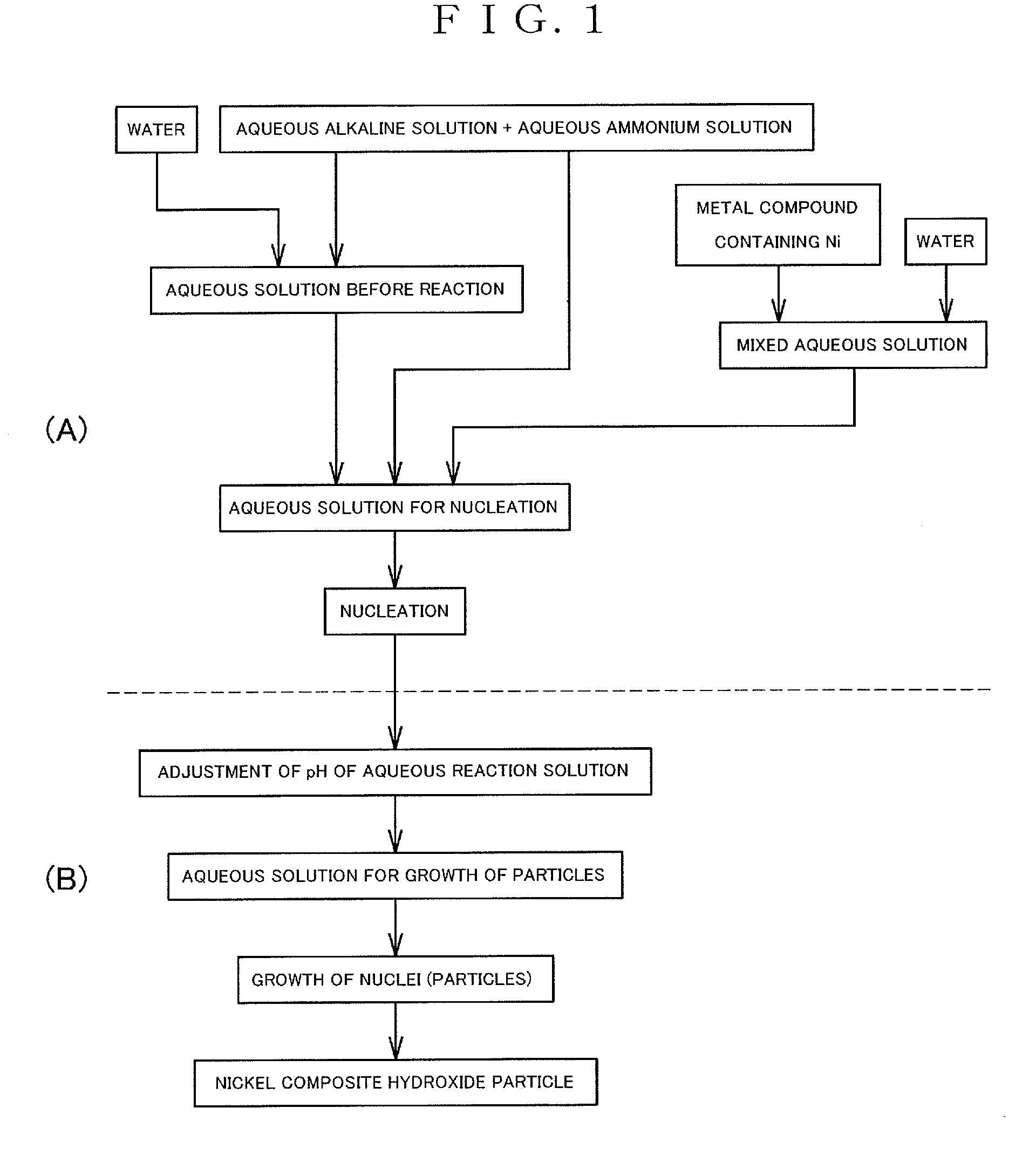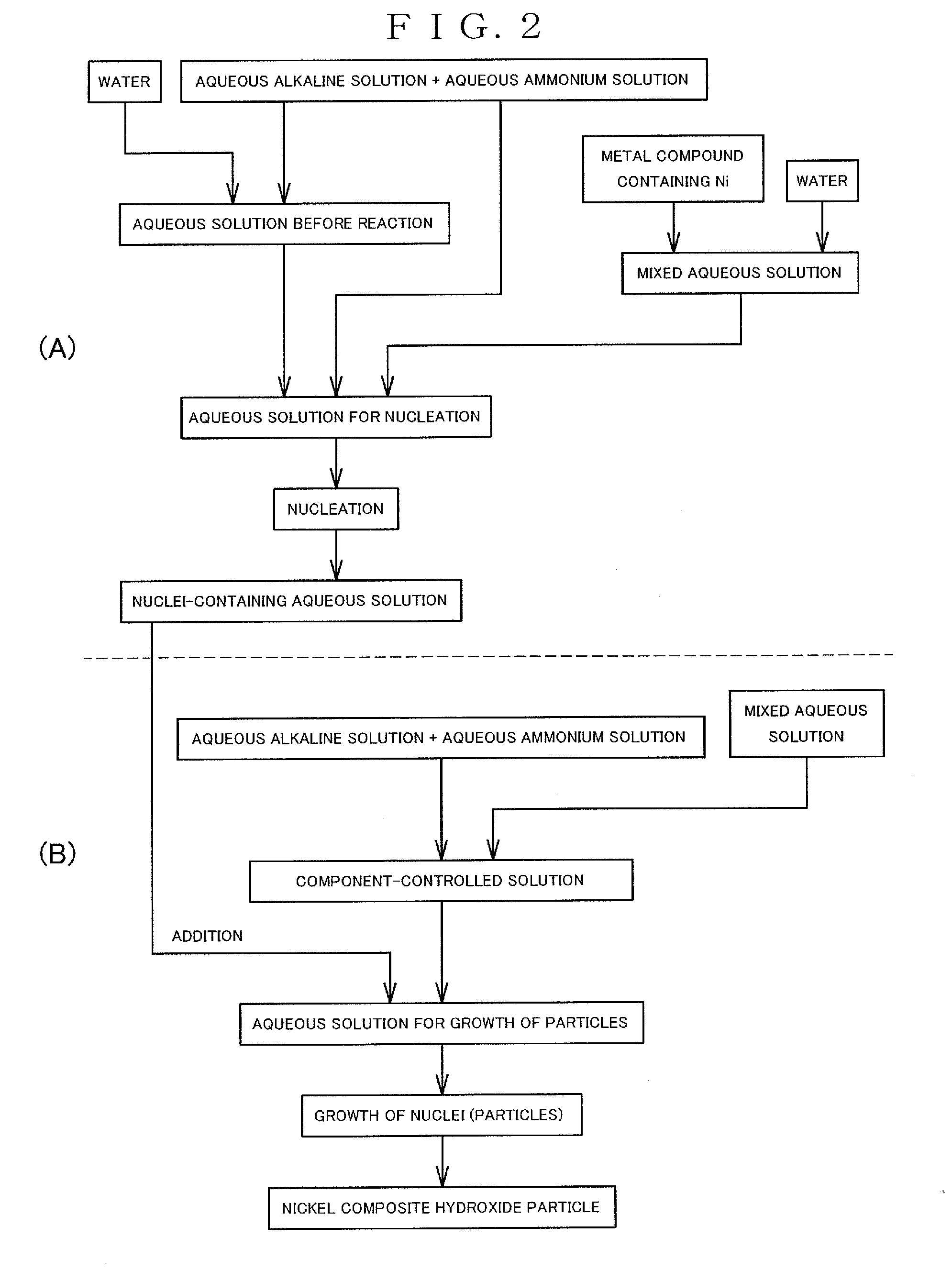Nickel complex hydroxide particles and nonaqueous electrolyte secondary battery
a technology of composite hydroxide particles and secondary batteries, which is applied in the direction of nickel compounds, other chemical processes, cell components, etc., can solve the problems of increasing reaction resistance, lowering battery capacity, and insufficient ensuring of the reaction area of the material with the electrolyte, so as to achieve smooth operation, suppress the formation of new nuclei, and increase particle density.
- Summary
- Abstract
- Description
- Claims
- Application Information
AI Technical Summary
Benefits of technology
Problems solved by technology
Method used
Image
Examples
example 1
Step for Producing Composite Hydroxide
[0258]The composite hydroxides were prepared by carrying out the following methods in accordance with the method according to the present invention.
[0259]First of all, a reaction vessel having a volume of 34 L was charged with water in a half amount of the volume of the reaction vessel. Thereafter, while stirring the water, the temperature in the reaction vessel was controlled to 40° C., and nitrogen gas was introduced into the reaction vessel to form a nitrogen atmosphere in the reaction vessel. At that time, the concentration of oxygen in the space of the reaction vessel was 2.0% by volume.
[0260]A 25% aqueous sodium hydroxide solution and a 25% aqueous ammonia were added into water in the reaction vessel in appropriate amounts, and an aqueous solution before the reaction in the vessel was adjusted to have a pH of 12.6 in terms of the pH as measured at a liquid temperature of 25° C. as a standard. Additionally, the ammonia concentration in the ...
example 2
[0282]A cathode active material for a nonaqueous electrolyte secondary battery was obtained in the same manner as in Example 1 except that lithium hydroxide was mixed with the composite oxide particles so that Li / Me became 1.06 (molar ratio). The performance of the obtained cathode active material for a nonaqueous electrolyte secondary battery was examined in the same manner as in Example 1.
[0283]In addition, it was confirmed by a chemical analysis that the obtained cathode active material had a composition containing Li of 7.62% by mass, Ni of 49.8% by mass, Co of 9.15% by mass and Al of 0.97% by mass, which showed that the cathode active material had a composition of Li1.056Ni0.82Co0.15Al0.03O2, and had a crystal structure of a hexagonal system as determined by a powder X-ray diffraction.
example 3
[0284]In the step for production of composite hydroxide particles, a mixed aqueous solution was prepared so that the ratio of Ni:Co:Al of the metal elements became 0.83:0.16:0.01 in a molar ratio. A cathode active material for a nonaqueous electrolyte secondary battery was obtained in the same manner as in Example 1 except that the step for nucleation was carried out so that the pH of the obtained mixed aqueous solution became 12.8 at 25° C., and that covering of aluminum hydroxide was not carried out after the nucleation. The performance of the obtained cathode active material for a nonaqueous electrolyte secondary battery was examined in the same manner as in Example 1.
[0285]In addition, it was confirmed by a chemical analysis that the obtained cathode active material had a composition containing Li of 7.38% by mass, Ni of 50.7% by mass, Co of 9.76% by mass and Al of 0.97% by mass, which showed that the cathode active material had a composition of Li1.021Ni0.83CO0.16Al0.10O2, and ...
PUM
| Property | Measurement | Unit |
|---|---|---|
| temperature | aaaaa | aaaaa |
| temperature | aaaaa | aaaaa |
| concentration | aaaaa | aaaaa |
Abstract
Description
Claims
Application Information
 Login to View More
Login to View More - R&D
- Intellectual Property
- Life Sciences
- Materials
- Tech Scout
- Unparalleled Data Quality
- Higher Quality Content
- 60% Fewer Hallucinations
Browse by: Latest US Patents, China's latest patents, Technical Efficacy Thesaurus, Application Domain, Technology Topic, Popular Technical Reports.
© 2025 PatSnap. All rights reserved.Legal|Privacy policy|Modern Slavery Act Transparency Statement|Sitemap|About US| Contact US: help@patsnap.com



